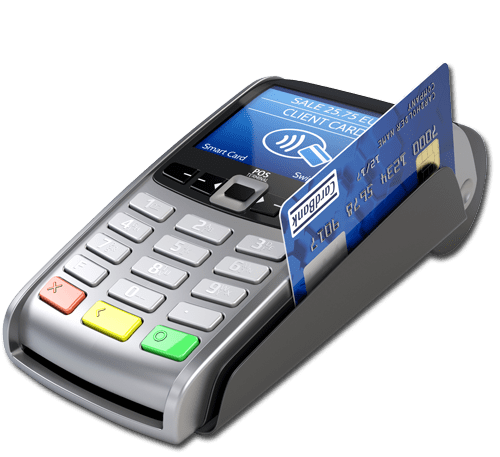Let's Talk!
To aid their customers in the quest for EMV compliance, a transportation in-vehicle technology solutions company presented Chetu with the task to upgrade their Point-of-Sale (POS) offerings. They wanted EMV payment terminals with the applicable ISO standards to accept mag-stripe, EMV, and contactless card functions, programmed with all the appropriate AIDs and support for offline batch processing. Chetu's software solutions allowed this proprietor to offer secure and reliable POS terminals to adapt to the changing payments infrastructure.
With payment fraud rampant in the United States and around the world, credit and debit cards have been phased out and replaced by Europay, MasterCard, and Visa (EMV) smart card standards. The cards, which have a contact function similar to an ATM or a contactless function that uses NFC technology, are equipped with a microprocessor chip in conjunction with the traditional magnetic stripe.
The chip validates transactions by employing cryptography and tokenization features, making it far more advanced than other card payment technology. The conventional mag-stripe uses a signature and visual inspection to safeguard the use of natively stored personal identifiers. Unfortunately, this data can be easily duplicated and reused. The "chip and pin" cards do not store personal data natively making them difficult to decrypt and counterfeit. They also employ a Personal Identification Number (PIN) validation making them a more secure option.
Although chip and pin cards are widely used abroad, they have yet to be mainstreamed in the United States payments infrastructure. By October 2015 major card networks including Visa, MasterCard, AmEx, and Discover imposed fraud liabilities on parties that do not switch to the new EMV standards. For merchants, financial institutions, and fuel dispensers, this means adding new payment technologies at the point-of-sale.


The client, a leading provider of global transportation in-vehicle technology solutions, wished to implement a POS EMV system, to be offered to independent merchant taxi service entities. The primary problem was that they had to update their current POS systems to alleviate the liability shift from their customers.
They wanted to integrate with a leading payment processor that they already associated with, and a certified hardware terminal that supports mag-stripe, EMV, and contactless, which conforms to the following ISO standards:
Additionally, Chetu was tasked with the research to find a suitable mobile card reader device that supports mag-stripe, EMV, and contactless card types. In the research and development period, Chetu considered all dimensions of the solution at hand—cost factors, ease of integration, OS support, connectivity, compatibility. Once the hardware was chosen Chetu moved on to address the implementation of application identifiers and enable support for offline features.
Using extensive research, Chetu pinpointed the terminals capable of supporting the appropriate ISO standards for mag-stripe, EMV, and contactless card functions. Following the research, it was subsequently decided to select the Ingenico iPP 320 device. This device supports the necessary ISO functions, is First Data certified for supporting end-to-end encryption, is within the proposed budget, and has all necessary features.
After selecting the proper EMV terminal, Chetu began programing the AIDs. EMV chips are equipped with an Integrated Circuit Card (ICC) application. These applications hold the identifiers, or tags, that allow different proprietary card issuers, payment processors, and card networks to uniquely interact with different terminals. A card using EMV standards will contain one or more unique AIDs, and each payment terminal will have one or more of the corresponding Identifiers to accept that card.
Considering each merchant had their own payment partner, Chetu ensured that the terminals were programmed with all available AIDs to maximize compatibility. Additionally, the terminals were programed for offline batch processing for areas where internet infrastructure is unreliable and slow. Static Data Authentication (SDA) allows for offline validation by signature and a batch processing function when a solid connection to the internet is maintained.
Chetu's upgrades allowed the client to grow and expand beyond their legacy payment options. The entity Chetu engineered offers customers a secure, reliable, and cost effective POS terminal. Now, the client offers a payment solution that reduces liability by supporting mag-stripe, EMV chip, and contactless payment methods. Going above and beyond the standard, the client leverages mobile, Bluetooth, and USB connectivity for motility within the transportation industry. To navigate through unreliable internet connectivity, the final deliverable offers offline support and batch processing.

Privacy Policy | Legal Policy | Careers | Sitemap | Referral | Contact Us
Copyright © 2000-2024 Chetu Inc. All Rights Reserved.
